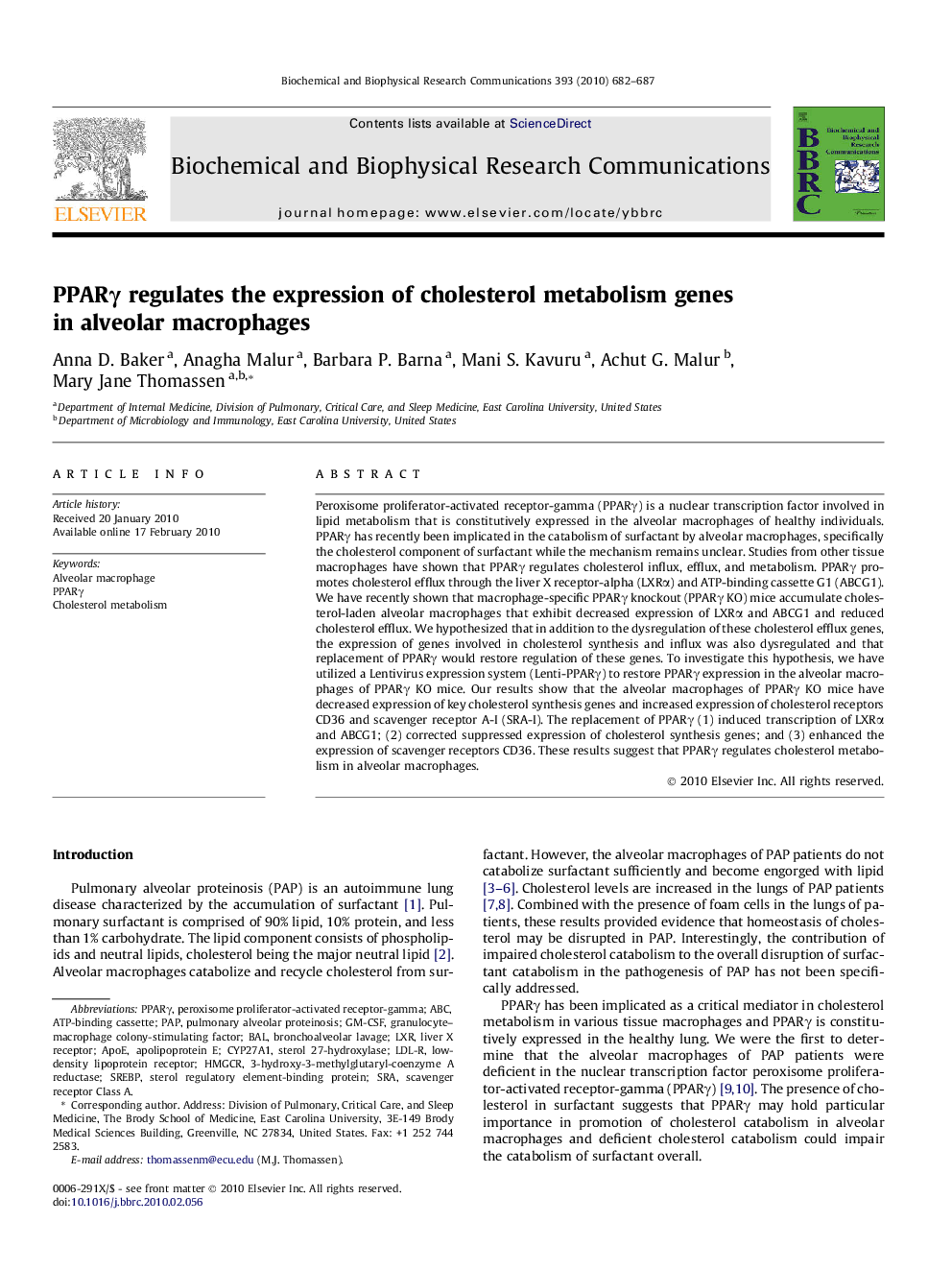| Article ID | Journal | Published Year | Pages | File Type |
|---|---|---|---|---|
| 1932106 | Biochemical and Biophysical Research Communications | 2010 | 6 Pages |
Peroxisome proliferator-activated receptor-gamma (PPARγ) is a nuclear transcription factor involved in lipid metabolism that is constitutively expressed in the alveolar macrophages of healthy individuals. PPARγ has recently been implicated in the catabolism of surfactant by alveolar macrophages, specifically the cholesterol component of surfactant while the mechanism remains unclear. Studies from other tissue macrophages have shown that PPARγ regulates cholesterol influx, efflux, and metabolism. PPARγ promotes cholesterol efflux through the liver X receptor-alpha (LXRα) and ATP-binding cassette G1 (ABCG1). We have recently shown that macrophage-specific PPARγ knockout (PPARγ KO) mice accumulate cholesterol-laden alveolar macrophages that exhibit decreased expression of LXRα and ABCG1 and reduced cholesterol efflux. We hypothesized that in addition to the dysregulation of these cholesterol efflux genes, the expression of genes involved in cholesterol synthesis and influx was also dysregulated and that replacement of PPARγ would restore regulation of these genes. To investigate this hypothesis, we have utilized a Lentivirus expression system (Lenti-PPARγ) to restore PPARγ expression in the alveolar macrophages of PPARγ KO mice. Our results show that the alveolar macrophages of PPARγ KO mice have decreased expression of key cholesterol synthesis genes and increased expression of cholesterol receptors CD36 and scavenger receptor A-I (SRA-I). The replacement of PPARγ (1) induced transcription of LXRα and ABCG1; (2) corrected suppressed expression of cholesterol synthesis genes; and (3) enhanced the expression of scavenger receptors CD36. These results suggest that PPARγ regulates cholesterol metabolism in alveolar macrophages.
